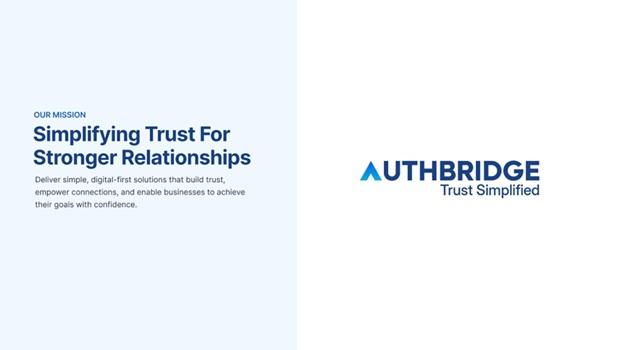PGDM – Jan 2024 Batch
Introduction
The advent of Artificial Intelligence (AI) has transformed the way humans interact with technology, revolutionizing industries, and reshaping everyday life. However, like any ground-breaking innovation, AI sparks a debate—is it a blessing or a threat? Let’s delve into the two sides of this revolutionary technology to understand its implications better.
The Boon of Artificial Intelligence
AI has emerged as a powerful tool that simplifies processes, enhances productivity, and drives innovation. Here are some of the ways it benefits humanity:
- Efficiency and Automation: AI enables automation in industries, reducing manual effort and increasing efficiency. From manufacturing to customer service, AI-powered systems like robots and catboats perform repetitive tasks, freeing up human resources for creative and strategic roles.
- Improved Healthcare: AI’s role in healthcare is transformative. Machine learning algorithms analyse medical data to predict diseases, recommend treatments, and even assist in surgeries through robotics. Early diagnosis of conditions like cancer has become more accurate, saving countless lives.
- Enhanced Decision-Making: AI-powered analytics provide insights that help businesses and governments make data-driven decisions. Predictive analytics optimize supply chains, improve resource allocation, and enhance risk management.
- Everyday Convenience: From virtual assistants like Siri and Alexa to personalized recommendations on Netflix or Spotify, AI has seamlessly integrated into our daily lives, making tasks more convenient and enjoyable.
The Major Concerns Surrounding Artificial Intelligence
Despite its potential, AI poses challenges that cannot be ignored.
- Job Displacement: The automation of tasks threatens jobs, especially in sectors reliant on manual Workers in manufacturing, Transportation and customer service face the risk of unemployment as AI-driven machines replace them. The impact of AI on jobs is a growing concern as industries adopt AI-driven automation at a rapid pace
- Ethical Dilemmas: AI raises serious ethical questions, including biases in algorithms, privacy invasion, and the misuse of facial recognition technology. Ensuring AI operates fairly and transparently remains a significant challenge.
- Dependence and Security Risks: Overreliance on AI can lead to vulnerabilities. Cyber-attacks targeting AI systems could have catastrophic consequences, from financial fraud to power grid failures. Additionally, AI-driven misinformation campaigns can undermine social trust and democracy.
Threat of Uncontrolled AI
The concept of AI surpassing human Intelligence, often termed Artificial General Intelligence (AGI), raises fears of losing control over machines. Experts like Elon Musk and Stephen Hawking have cautioned against the unregulated development of AI, warning of existential risks.
Striking the Balance in the AI Revolution
The AI Revolution is redefining industries and society. The debate of whether AI is a big concern, or a boon depends on how society manages its development and deployment. Governments, businesses, and researchers must collaborate to establish ethical guidelines, prioritize transparency, and address potential risks. Investments in reskilling and up skilling the workforce are also critical to counter job displacement.
The Transformative Power of Artificial Intelligence Across Industries
Challenges of AI: The Other Side of the Coin
1. Healthcare: Revolutionizing Diagnosis and Treatment AI-driven systems can now detect diseases faster and more accurately than human doctors:
- IBM Watson Health uses AI to analyse medical data for better diagnostics and personalized treatment plans.
- Google’s Deep Mind developed an AI that can diagnose over 50 eye diseases with 94% accuracy.
2. Automation: Boosting Industrial Efficiency
- AI-powered robots in manufacturing increase productivity while reducing operational costs.
- Amazon’s AI-driven warehouses optimize inventory management and reduce delivery times.
3. Finance: Smarter Fraud Detection
- Algorithms detect fraudulent transactions in real time by analysing spending patterns.
- JPMorgan Chase’s COiN platform reviews legal documents at lightning speed, saving 360,000 hours of human work annually.
4. Transportation: Paving the Way for Autonomous Vehicles
- Tesla’s Autopilot uses AI for real-time navigation and accident prevention.
- AI-driven traffic management systems are improving city traffic flow, reducing congestion by 20% in some areas.
While AI offers remarkable benefits, it also brings significant challenges:
- Job Displacement: Automation could replace up to 800 million jobs globally by 2030 (McKinsey Global Institute).
- Bias in Algorithms: AI systems can unintentionally reflect human biases, leading to unfair decisions in hiring, lending, or law enforcement.
- Data Privacy: AI’s reliance on massive datasets raises concerns over personal data security and misuse.
The Road Ahead
As AI continues to evolve, its benefits can be maximized with responsible development and ethical frameworks. Governments, businesses, and individuals must work together to ensure AI remains a force for good.
Conclusion
Artificial Intelligence is neither inherently good nor bad—it is a tool shaped by the way humans use it. While it promises unprecedented advancements and convenience, it also demands caution and responsibility. Striking a balance between innovation and regulation will determine whether AI becomes a big concern or a boon for humanity.
What do you think? Will AI lead us to a utopian future or bring unforeseen challenges? The answer lies in our hands.




